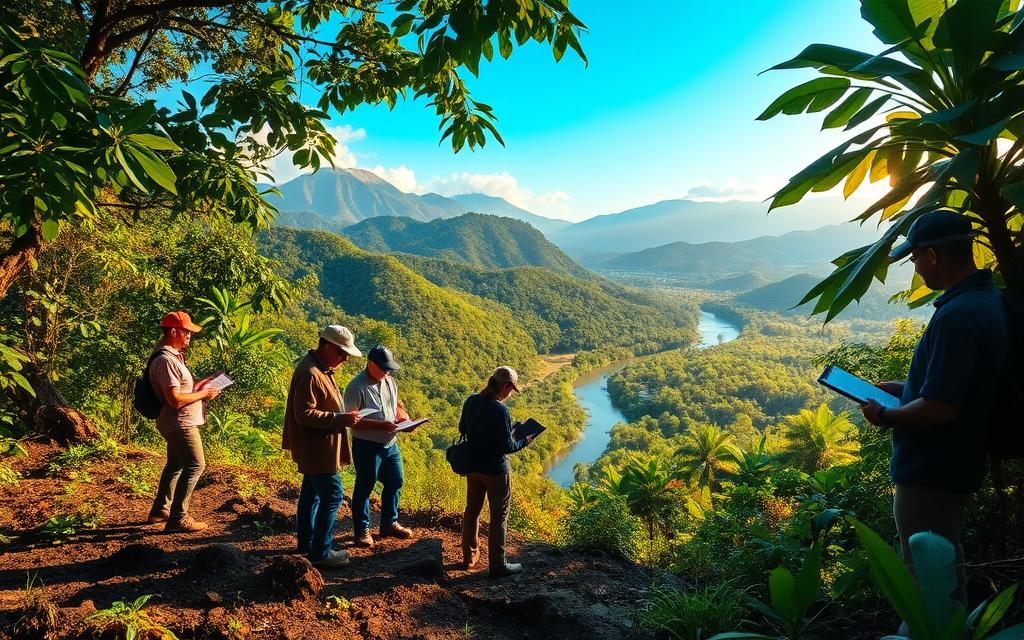Get interest-only-private-loans-in-costa-rica with our private investor network. Enjoy competitive rates, lower fees, and flexible financing options for your investment property.

Performing Due Diligence in Costa Rica: Secure Equity Loans with Us
Investing in Costa Rican real estate can be a lucrative opportunity, but it requires careful consideration and thorough due diligence. As foreign buyers, it’s essential to ensure a secure land acquisition process. We connect borrowers with private investors and lenders, providing competitive rates and flexible financing options for equity loans in Costa Rica.
Our due diligence services verify that the property is free from legal and technical issues, including title verification and zoning review. This process protects your investment and ensures compliance with Costa Rican property laws. By understanding the importance of due diligence, foreign buyers can navigate the unique aspects of Costa Rican real estate transactions and avoid common pitfalls.
Understanding Due Diligence in Costa Rica
For investors looking to buy property in Costa Rica, due diligence is a vital step that ensures a secure transaction. Due diligence is a comprehensive investigation that examines the legal, financial, and physical aspects of a property before purchase, serving as a crucial risk management tool.
What Is Due Diligence and Why It Matters
Due diligence in Costa Rica involves a thorough examination of the property’s legal status, including its ownership history and any encumbrances. This process helps investors identify potential issues early, such as title problems, zoning restrictions, and environmental concerns that could affect property value and usability. By understanding the importance of due diligence, investors can protect their capital investment in Costa Rica’s real estate market.
- Due diligence goes beyond simple document verification to become a contractual and strategic tool.
- The legal framework for due diligence in Costa Rica includes the Public Registry system.
- Costa Rica’s property laws differ significantly from those in other countries, making local expertise essential.

The Legal Framework for Due Diligence in Costa Rica
The legal framework for due diligence in Costa Rica is supported by the Public Registry, which records property ownership, encumbrances, and historical transfers. As stated on our page about the due diligence process in Costa, this system provides a stable foundation for real estate transactions. However, proper due diligence is still necessary to navigate its unique requirements and protect your investment.
By understanding the legal framework and conducting thorough due diligence, investors can ensure a secure and successful transaction in Costa Rica’s real estate market.
Essential Steps for Performing Due Diligence in Costa Rica
To safeguard your investment in Costa Rica, it’s essential to follow a comprehensive due diligence process. This process not only ensures that your property transaction is secure but also that it complies with all local regulations.
Hiring a Local Attorney
Hiring a local attorney who specializes in real estate law is the first crucial step in the due diligence process. They understand Costa Rican property laws and can navigate the legal system effectively, ensuring that your rights as a buyer are protected.
Conducting a Comprehensive Title Search
A comprehensive title search through the National Registry (Registro Nacional) is essential to verify ownership, identify encumbrances, and ensure there are no legal issues with the property title. This step is critical in confirming that the seller has the right to sell the property.
Property Survey and Boundary Verification
Property surveys conducted by licensed topographers verify that the physical boundaries match the registered coordinates and identify any encroachments or boundary disputes. This step ensures that the property you are buying is the one you were shown.
Zoning and Land Use Regulations
Understanding zoning and land use regulations is critical, as they determine what can be built on the property and how it can be used. Verification with the local municipality is necessary to ensure compliance with these regulations.
Each of these steps plays a vital role in the due diligence process, helping buyers identify potential risks and make informed decisions about their property investment in Costa Rica.
Environmental and Technical Due Diligence Considerations
When investing in Costa Rica, it’s crucial to consider environmental and technical due diligence to ensure the viability of your project. This involves a comprehensive assessment of various factors that could impact your investment.
Environmental Regulations and Protected Areas
Costa Rica is known for its rich biodiversity and commitment to environmental conservation. As such, environmental regulations are stringent, and protected areas are prevalent. Understanding these regulations is vital to avoid legal issues and ensure compliance.
- Verify if the property falls within or near protected areas or conservation zones.
- Comply with environmental regulations to avoid fines or project halts.
For more detailed guidance on navigating these regulations, visit our guide on securing project funding in Costa.

Hydrological and Forestry Assessments
Costa Rica’s tropical climate means that hydrological analysis is a critical component of due diligence, especially for development projects. Assessing flood risks, drainage issues, and water sources is essential.
- Conduct hydrological studies to determine flood risks and water accumulation.
- Perform forestry assessments to identify protected tree species or forestry restrictions.
Understanding water rights and access is also crucial, as it significantly impacts property value and development potential.
Financial Aspects of Due Diligence in Costa Rica
Conducting thorough financial due diligence is essential for securing a successful real estate transaction in Costa Rica. This process involves understanding various financial components that can impact your investment.
Understanding Closing Costs and Taxes
Closing costs in Costa Rica can vary based on the property’s value and the specific terms of the agreement. Generally, these costs are divided between the buyer and the seller, although this is negotiable. The Transfer Tax is typically 1.5% of the registered property value, usually paid by the buyer. Notary Fees range from 1.25% to 2% of the purchase price, customarily paid by the buyer, but are negotiable.
Financial due diligence involves understanding all costs associated with property acquisition, including transfer taxes, notary fees, and registration fees. In Costa Rica, closing costs typically amount to 4-5% of the purchase price for the buyer. Understanding tax obligations, including annual property taxes and potential capital gains taxes, is also crucial.

Evaluating Property Value and Investment Potential
Evaluating the value and investment potential of a property in Costa Rica requires careful assessment of comparable properties and local market conditions. Factors such as location, infrastructure development, tourism trends, and rental demand in the specific region should be considered.
Investment potential analysis should also take into account the overall economic conditions and growth prospects of the area. By thoroughly evaluating these factors, investors can make informed decisions about their property investments in Costa Rica.
How GAP Equity Loans Can Finance Your Costa Rican Investment
GAP Equity Loans offers a viable financing solution for those looking to invest in Costa Rica. We understand the importance of thorough due diligence in the investment process.
Benefits of Home Equity Loans in Costa Rica
Our home equity loans provide financing solutions specifically designed for property investments in Costa Rica, allowing you to leverage your existing property as collateral. This can be particularly beneficial for foreign buyers who may face challenges with traditional financing options.
Our Loan Options and Terms
We offer home equity loans ranging from $50,000 to $1,000,000 with interest rates starting at 12% based on the loan-to-value ratio (LTV) and other risk factors. Our loan terms are flexible, ranging from 6 months to 3 years, tailored to your specific investment timeline and financial strategy.
The Application and Approval Process
Our application process is streamlined to minimize paperwork and expedite approval, connecting borrowers directly with private investors and lenders. Using equity loans can be an effective strategy to finance due diligence costs and subsequent property purchases in Costa Rica.
Conclusion: Securing Your Investment Through Proper Due Diligence
Due diligence is the cornerstone of a successful property investment in Costa Rica. Whether you’re purchasing a private residence, investment property, or raw land, thorough due diligence protects buyers from unforeseen legal issues and regulatory complications. At GAP Equity Loans, we understand the importance of comprehensive due diligence in ensuring that your property is free of encumbrances and compliant with local regulations. Our equity loans provide the financial support needed to complete both the due diligence process and the subsequent property purchase. For more information on Costa Rica’s property laws and investment opportunities, visit our resource page. Contact us today to discuss how we can help finance your Costa Rican property investment.
Article by Glenn Tellier (Founder of CRIE and Grupo Gap)



